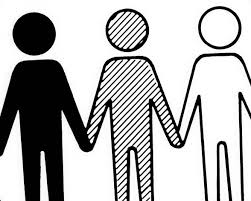
The word ‘racist’ has been overused so badly in 21st century discourse that it no longer has any real meaning. Originally used to describe a person who held unfair prejudices against a group of people on the basis of their skin colour, it now has a wide range of meanings depending on the political motivations of the person pointing the finger.
The first definition is what can be called the “supremacist” orientation. This is the attitude a person has if they believe that their race is the greatest one of all and everyone else is naturally inferior. It is also the “classical” racism that was espoused by Adolf Hitler, and is the real type of racism that everyone is afraid of.
The problem with a supremacist orientation of racism is that it obligates the holder to be fighting all the time. As the alpha male in any dominance hierarchy soon learns, claiming to be the top dog means you’re always fighting off challengers. This is great in a “live fast, die young” sense, but it doesn’t make for peace or order.
In an effort to bring peace on Earth, The Powers That Be have made immense efforts to discourage this sort of racism since the end of World War II, in which this sort of racism was directly responsible for the deaths of 50,000,000 people.
The second definition is specific, and could be termed the “experiential” version of racism. People in this category are not supremacists because they do not believe that their own specific race is generally superior, so they are not racists in the first sense. In this category are people who have learned to not like members of specific races through adverse life experiences.
People in this category can, in fact, can be the opposite of supremacists, as they often are in the case of white people who happily concede that the average IQ of a Far East Asian is higher than that of a white person, or in the case of Far East Asians who happily concede that white people are much less corrupt when in government than Far East Asians.
They often get accused of being racists, though, because their experience has caused them to hold unflattering opinions of some races and these opinions are often considered supremacist by social justice warriors looking for someone to freak out at. The truth prevails, however, because these people tend to find each other and reinforce each others’ experiences.
The third is the “Marxist” definition of racism, which is the weaponised version. Here the concern is with how to use guilt about racism as a tool for browbeating those perceived to be bourgeoisie. Anywhere you hear the ludicrous assertion that racism isn’t real racism unless the person doing it is part of the bourgeoisie, you know you’re in Marxist territory.
This weaponised version of racism is used to manipulate people, usually white people, into believing that they have inherited racial debts from the age of colonialism, and can only clear these racial debts by supporting Marxist policies like mass Muslim immigration. This is why it is so frequently brought out when someone criticises the practices of the religion of Islam, which is not a race.
Unfortunately for the Marxists, their attempts to guilt-trip people into supporting their policies has backfired, because no-one knows which of these definitions is being used at any one time. Manipulating people through dishonest use of language is typical for people with totalitarian mindsets, but overuse of it causes the populace to become aware.
*
If you enjoyed reading this essay, you can get a compilation of the Best VJMP Essays and Articles of 2017 from Amazon for Kindle or Amazon for CreateSpace (for international readers), or TradeMe (for Kiwis).
